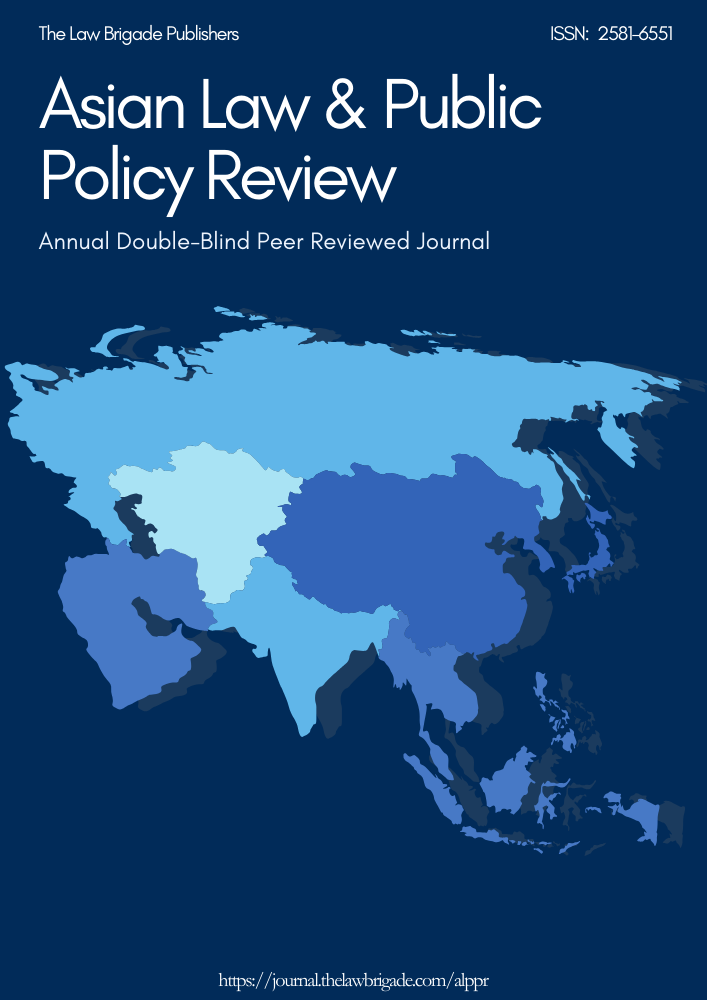ANALYSIS OF THE CONCEPT OF SECULARISM IN INDIA
Keywords:
secularism, society, plurasimAbstract
Secularism in India is among most debated topic in the recent years. Secularism in general sense mean separation of religion from the state. The Concept of secularism in India is very much different from west or its general usage in English language, one of the distinctive features of secularism in India is that it does not draw a clear wall of separation between church and religion but it also does not promote any religion. Interestingly the world secularism is introduced to the constitution by 42nd Constitutional Amendment but the Framers of the constitution were crystal clear about the secular nature of the state. The constitutional assembly debates give a clear account of general agreement between the member about non establishment of any particular religion but also respecting religious sentiment of people. Thus, paper tries to investigate the different aspects of secularism in India and what makes India secular.
Downloads
References
i DR S RADHAKRISHNAN, RECOVERY OF FAITH (Harper Brothers) (1955)(page 202)
ii Introduction]. (2010). In 921927900 723723887 B. Z. Tamanaha (Author), A general jurisprudence of law and
society. Oxford: Oxford University Press.
iii UNDERSTANDING SECULARISM IN THE INDIAN CONTEXT THE HINDU,
https://www.thehindu.com/opinion/lead/the- secular-condition/article22347527.ece (last visited Sep 28, 2020)
iv Seval Yildirim, Expanding Secularism's Scope: An Indian Case Study, 52 THE AMERICAN JOURNAL OF
COMPARATIVE LAW , 901 (2004)
v Vivekananda. The Complete Works of Swami Vivekananda. Calcutta : Advaita Ashrama, 1989, vol. IV, p. 476
vi Radhakrishnan, S. (2012). Conflict of religion. In The Hindu view of life (pp. 36-37). New Delhi: Element, an
imprint of HarperCollins
vii Radhakrishna, S. (2010). The Bhagavadgita/with an Introductory Essay,Sanskrit Text,English Translation and
Notes. Harper Collins Publishers India.
viii inCHRISTIANS IN SECULAR INDIA , 26–27 (A.V Thomas).
ix Radhakrishnan, S. (2012). Conflict of religion. In The Hindu view of life (pp. 36-37). New Delhi: Element, an
imprint of HarperCollins
x AKBAR'S RELIGIOUS VIEWS AND HIS POLICY TOWARDS HINDUS,
https://www.historydiscussion.net/history-of- india/akbars-religious-views-and-his-policy-towards-hindus/2792
(last visited Sep 28, 2020)
xi Ibid
xii Secularism in Endian Ethos, in TOWARDS NEW INDIA (Dr shankar dayal sharma).
xiii Ibid
xiv SHASHI THAROOR, WHY I AM A HINDU (Hurst & Company) (2018)
xv CONSTITUTION OF INDIA, https://www.constitutionofindia.net/ (last visited Sep 14, 2020)
xvi Ibid
xvii S.R. Bommai vs Union Of India 1994 AIR 1918, 1994 SCC (3) 1
Published
Issue
Section
License

This work is licensed under a Creative Commons Attribution-NonCommercial-ShareAlike 4.0 International License.
License Terms
Ownership and Licensing:
Authors of research papers submitted to any journal published by The Law Brigade Publishers retain the copyright of their work while granting the journal specific rights. Authors maintain ownership of the copyright and grant the journal the right of first publication. Simultaneously, authors agree to license their research papers under the Creative Commons Attribution-ShareAlike 4.0 International (CC BY-SA 4.0) License.
License Permissions:
Under the CC BY-SA 4.0 License, others are permitted to share and adapt the work, even for commercial purposes, provided that appropriate attribution is given to the authors, and acknowledgment is made of the initial publication by The Law Brigade Publishers. This license encourages the broad dissemination and reuse of research papers while ensuring that the original work is properly credited.
Additional Distribution Arrangements:
Authors are free to enter into separate, non-exclusive contractual arrangements for distributing the published version of the work (e.g., posting it to institutional repositories or publishing it in books), provided that the original publication by The Law Brigade Publishers is acknowledged.
Online Posting:
Authors are encouraged to share their work online (e.g., in institutional repositories or on personal websites) both prior to submission and after publication. This practice can facilitate productive exchanges and increase the visibility and citation of the work.
Responsibility and Liability:
Authors are responsible for ensuring that their submitted research papers do not infringe on the copyright, privacy, or other rights of third parties. The Law Brigade Publishers disclaims any liability for any copyright infringement or violation of third-party rights within the submitted research papers.


